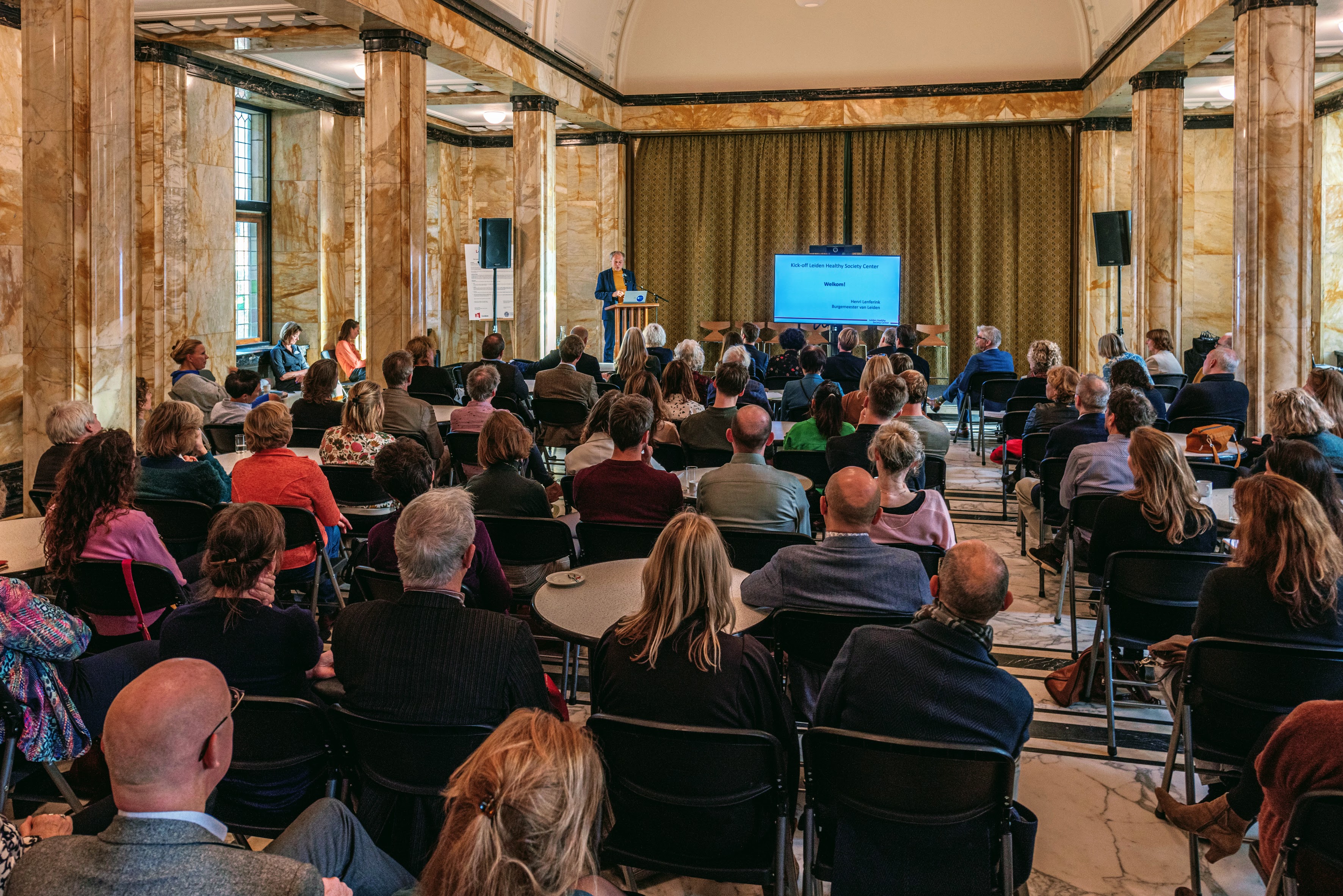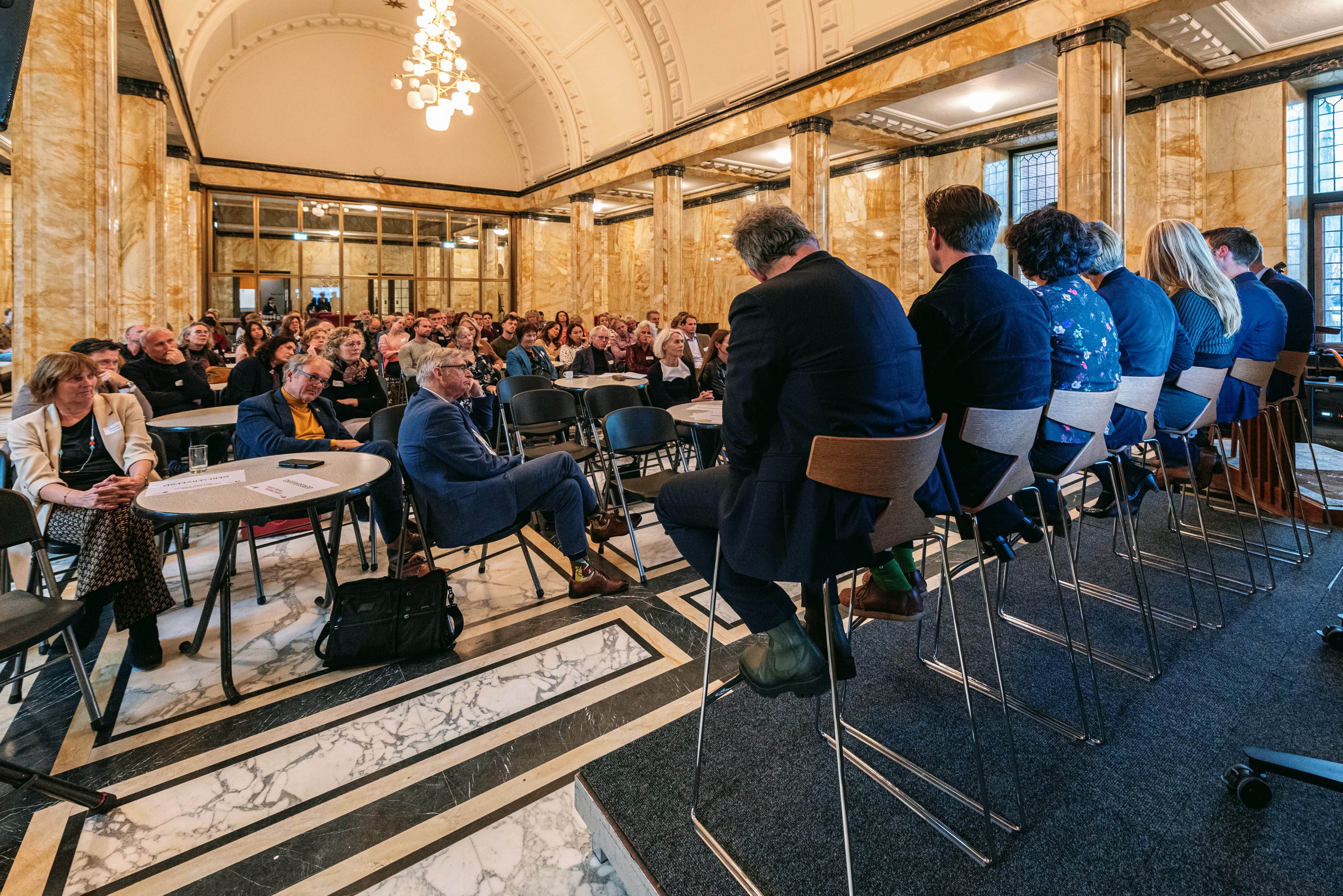
Leiden Healthy Society Center: making Leiden the healthiest city in the Netherlands
How can the people of Leiden age as well as possible? And what is needed to reduce health disparities? That is the mission of Leiden Healthy Society Center, a new partnership between the Municipality of Leiden, Leiden University and many other partners in the city.
Leiden Healthy Society Center is the initiative of the Municipality of Leiden and the Faculty of Social and Behavioural Sciences. Alderman Fleur Spijker and Dean Paul Wouters therefore signed a memorandum of understanding in front of more than one hundred attendees on 8 November. In the memorandum the two parties state that they and their partners will give further shape to Leiden Healthy Society Center over the coming year.

Healthy at 100
There are lots of health and well-being initiatives in the city. Why not make better use of all this knowledge and projects and scale it up, says alderman Spijker. At the launch in the city hall, the speakers emphasised the importance of joining forces. As mayor, Henri Lenferink recounted, he often visits people in Leiden when they turn 100 and sees big differences: some centenarians can still do almost everything themselves and don’t even need reading glasses whereas others are completely reliant on help.
‘Reducing these health disparities is an important mission of this new centre,’ said Professor of Health Psychology Andrea Evers and Eefke de Haan from the Municipality of Leiden echoed her words. They and various other speakers such as Wilco van Dijk, Director of the Knowledge Centre for Psychology and Economic Behaviour KCPEG), noted that the solution to many problems – such as being overweight or addicted to alcohol – doesn’t just begin with the individual. Because how can you get people with financial problems to eat more healthily if fatty food is available everywhere for just a few euros? The KCPEG translates health insights into practical workshops and training courses for the public and professionals.
-

More than a hundred participants, including many partners, came to the city hall. -

What should be on the new centre’s menu? Brainstorming group with Wilco van Dijk, Marieke van Haaren, Suzan van der Pas and Wessel de Jager. -

Panel discussion with the room.
Taking your blood pressure at home
In ‘flash pitches’ speakers spoke enthusiastically about their ongoing and new projects in the city. Anthropologist Josien de Klerk explained how medical anthropologists, the LUMC and the Leyden Academy on Vitality and Ageing are researching whether vulnerable groups have good access to care. Suzan van der Pas, a lecturer at University of Applied Sciences Leiden, explained how Werkplaats Sociaal Domein is working with organisations and residents of the Stevenshof district to make this a fit and healthy community where everyone is welcome to join in. The LUMC is also working in Stevenshof with its De Box and other e-Health tools that allow residents to take their blood pressure at home, for example.
In the Healthy Promising Start Leiden programme, care experts are channelling their efforts to giving babies the best possible start in life. And in Learning with the City, students from the University and the University of Applied Sciences are working with residents and partner organisations on social issues and thus investing in healthier, more pleasant neighbourhoods.
Health issues are often complex because of a combination of problems such as divorce, debt and stress.
Multidisciplinary approach to complex problems
The speakers all emphasised the importance of this kind of ‘co-creation’: seeking solutions to health and well-being problems together with residents, knowledge partners, well-being organisations and businesses. Because health problems are often complex because of a combination of problems that amplify one another, such as divorce, debt and stress. Rector Magnificus Hester Bijl and Dean Paul Wouters highlighted the different disciplines that the University, the University of Applied Sciences, the senior secondary vocational education and training organisations and other partners specialise in.
After the pitches, psychologist Sandra van Dijk led the room in a ‘cooking’ session – the attendees developed a menu in interactive sessions – to collect the best ideas for future collaboration. A team will spend the coming period fleshing these out. From now, the people of Leiden and anyone else who might be interested can send their questions about health and well-being to healthysocietycenter@leiden.nl. With the ultimate goal of making Leiden the healthiest city in the Netherlands.
See also the Faculty of Social and Behavioural Sciences Healthy Society Taskforce.
Text: Linda van Putten
Photos of the meeting: Buro JP
